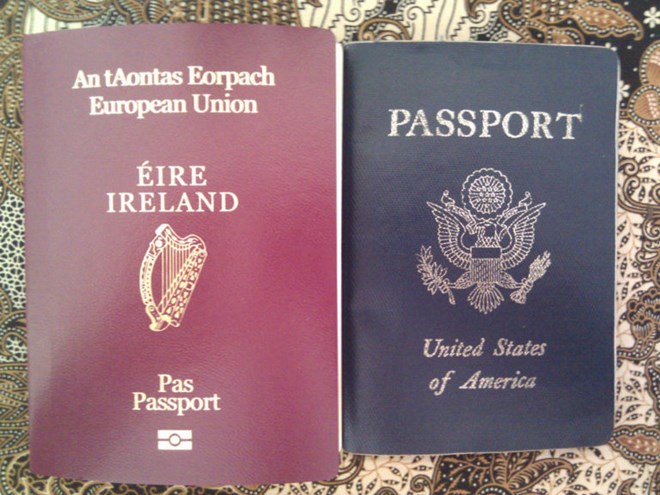Points to be Made
Sunday January 20, 2019

Photo by Patrick Barry, licensed under Creative Commons 2.0
We now live in the 21st century and given how easy it is to buy a ticket and jump on a plane, it should be no surprise to see the modern generation of young adults with two, three or even more citizenships. (Holiday romance, perhaps?)
There are many ways people can become a dual citizen. The vast majority involve being born with parents or grandparents of differing nationalities, or you have one nationality but live in another country long enough to naturalise into your country of residence, or you get married and the new country allows you to acquire nationality through that marriage.
If you possess dual or multiple citizenship, lucky you! The world is a better and more tolerant place when we embrace diversity.
Unless you are travelling on a domestic flight or within the Schengen area, you will probably encounter the need to show your passport. But what should you do if you have dual citizenship? In this post we go stage-by-stage into what document you should show. Please note, this post does NOT discuss how to travel with two passports issued by the same country.
Booking your flight
Airlines face severe penalties if a passenger is turned away at the arrival country's border. Therefore they will sometimes be overly cautious to the extent they will deny boarding unless you have definitive proof of your permission to enter your destination country.In reality it does not really matter which passport you book your flight with. (Big caveat though, see first paragraph of the section “Border Control at Arrival Country”) This practice extends to international trains or ship sailings. Therefore you should book your travel which gives the easiest access, i.e. if one passport requires a visa and the other does not, then use the passport that does not require a visa.
Check in desk
If you need to visit the check in desk, understand that this is run by the airline or a contractor for the airline. They are not country officials but rather are private entities. You MUST present the passport which you booked your travel, but keep the other one at hand in case there are any further questions.
Like above, the check in agent will not care if you hold single or multiple passports, but only that they will not face penalties if you get turned around at the border.
Border Control at Departure Country
Some countries like the United Kingdom and the United States do not stamp passports to record that you have departed. But nearly all other countries will involve some interaction with border control.
You must show whichever passport you originally used to entered the country. If this is a country where you have some kind of time restriction (e.g. tourism) then this is to make sure you do not exceed the permissible time. Another significant reason may also be in case you need to prove your location for tax calculations.
Border Control at Arrival Country
Some countries, such as the United States, require its citizens who hold multiple citizenships to identify themselves at the border using that passport. For example, a dual US-Italian citizen flies from Rome to New York. Both passports are visa-free but due to US laws the arriving passenger must go to the passport control and use his US passport to enter.
If you hold multiple citizenships you should understand carefully whether your countries require a similar practice. There is no general situation here and you should understand the law carefully.
If you do not hold citizenship of the arrival country, then you are free to use whichever passport you want to enter, subject to holding the correct visas. Therefore you should use the passport that will give you the ‘least hassle', i.e. does not require a visa or has a cheaper visa.
One important caveat though, if you are travelling with a family member (spouse, child or parents) within the European Union, you may be covered under EU Freedom of Movement laws. Check my post about ‘Surinder Singh‘ and the ‘EEA Dependent Ink Stamp‘ which explains these very specific issues. Note this law only applies if you are an EEA citizen living in another EEA country that is not one which you are a citizen, unless your country of citizenship treats its own citizenships the same as other EEA citizens.
Examples where countries exercise their right to ‘reverse discriminate' (i.e. treat its own citizens worse than other EEA citizens for the purposes of family reunion) are: United Kingdom, Ireland, Denmark, The Netherlands, Norway, Sweden, Germany, France, Italy and a few more. Consult an EU immigration law specialist in your country to clarify.